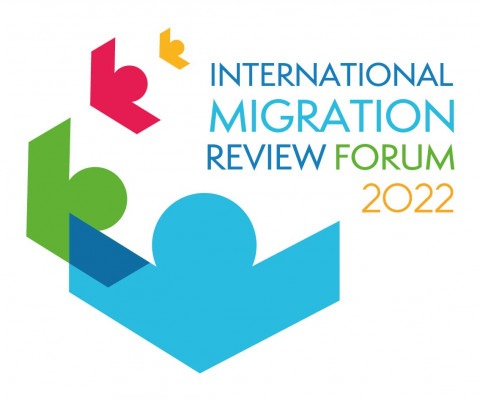By Michael Oche
As the 2022 International Migration Review Forum (IMRF) gets underway, the global Labour movement has outlined its position to the Forum, calling for a shift in priorities by States that will ensure that the needs and demands of workers are met.
The IMRF is the first opportunity for Member States and other stakeholders to discuss the successes and challenges to the implementation the Global Compact for Safe, Orderly and Regular Migration (GCM) since its adoption in 2018.
In its five-point demands to the Forum, Labour made a clarion call for a new social contract that ensures equality, inclusion, climate-friendly jobs, rights for all workers, and universal social protection.
Trade Unions argued that the Covid-19 pandemic has laid bare the need for sweeping changes to fix the economic and political systems that are failing workers and the global.
The Labour movement explained that from the outset, it had outlined a clear set of demands to ensure that the UN Global Compact on Migration adheres to human and labour rights standards. Equally, the trade unions continue to advocate for the GCM not to criminalize migrants further or empower the private sector to dictate the terms of migration governance.
It argued that States must move beyond temporary or circular migration programs and focus on regularization, humanitarian resettlement, and policies that promote sustainable development and decent work for all in countries of origin, transit and destination.
The Compact could serve as an essential vehicle to help address the root causes that compel people to migrate, encourage pathways out of irregularity, and enhance regular migration channels that promote shared prosperity and advance workers’ rights. However, the reality we see is quite different.
As part of its demands, trade unions have asked for what they describe as collective worker voice and participation.
It reads in part: “Trade unions have demanded a transparent Compact process that gives workers a seat at the table and ensures our freedom to stand together and receive a fair return on our work”. This demand requires authentic social dialogue and guarantees to adhere to our Fundamental Principles and Rights at Work.
“We urge States to heed the Compact’s call to engage in social dialogue at the national level with trade unions and workers’ organizations to develop decent work and fair migration further. The UN declaration should also reaffirm the importance of the ILO’s tripartite mechanisms and conventions as necessary foundations for building a fair migration governance framework.
“Trade unions have demanded a Compact process that protects and empowers workers in countries of origin, transit and destination, and policy coherence that produces positive labour market outcomes for all working people, regardless of race, gender or migration status.
“Unions are calling for investment in inclusive and quality public services and trade strategies that help create decent climate-friendly jobs, accompanied by just transition measures to promote resilience and guarantee that no one is left behind in dealing with the impacts of the climate crisis and in industrial transformation processes.
“Trade unions have demanded commitments to combat xenophobia and racism, end all forms of discrimination, and ensure equal treatment and access to justice and quality public services.
“The pandemic has revealed the essential nature of work that has long been invisible and undervalued, much of which is performed by migrants; a significant percentage of these are women migrant workers, such as those in the health and social care and domestic work. This amplifies the imperative for States to recognize the principles of equal protection and equality of treatment for all workers, regardless of their status or whether they are in the informal or formal economy. We call for policy coherence that incorporates migration governance into broader economic, social, racial and gender justice initiatives.
“Diverse channels for regular migration. Given that serious humanitarian concerns gave rise to the Compact, trade unions have demanded that the implementation process prioritize regularization schemes. It must also increase humanitarian resettlement options and other rights-based channels—which allow migrants the freedom to move, settle, work, and fully participate in society—over expanding temporary or circular work programs.
“Not all regular pathways are fair or equitable. We commend the UN declaration recommendation to redouble efforts to promote better regular pathways, including the call for regularization of undocumented migrants and family unification.”
The African Trade Union Migration Network (ATUMNET) will be meeting in Abuja, Nigeria from 25 – 27 May 2022 to distill the IMRF’s outcomes into its internal processes. It will be using the outcomes as inputs in it engagements as envisaged in its Action Plan developed and adopted in Dakar, Senegal in December 2021.







